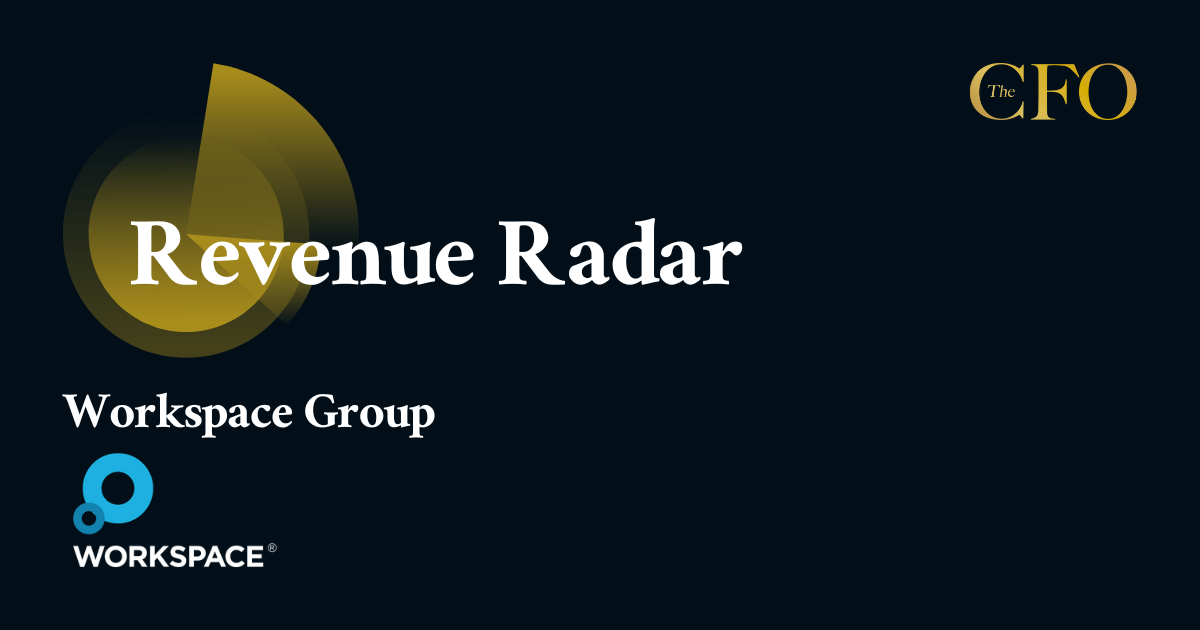Revenue Radar: Workspace Group

The CFO is pleased to launch a new article series – Revenue Radar – where we will analyse the quarterly earning reports of FTSE 100 and S&P 500 listed businesses.
Workspace Group PLC, a prominent player in the flexible office space sector, recently released its latest earnings report on June 5, 2024. This report provides critical insights into the company’s financial health and strategic direction. It reported it’s annual performance on June 5, 2024.
Workspace Group is known for its innovative approach to providing office solutions tailored to the needs of modern businesses, making it a significant entity in the UK real estate market.
The latest earnings report from Workspace Group highlights several key financial metrics:
Workspace Group has experienced fluctuations in its financial performance.
The reported annual sales of £182.60 million indicate the company’s ability to generate significant revenue, yet the substantial net loss of £221.5 million raises concerns about its profitability. The negative EPS of -1.16 GBX further underscores the challenges Workspace Group faces in achieving financial stability.
Workspace Group’s financial performance reveals significant challenges, particularly with its profitability metrics. The substantial net loss and negative EPS indicate the company is struggling to manage its costs relative to its revenue. This trend can be partially attributed to the high operational expenses associated with maintaining and developing office spaces. Additionally, the impact of the Covid-19 pandemic has fundamentally altered the demand for office spaces, with many businesses adopting hybrid or fully remote work models, reducing the need for traditional office leases.
The stock price of Workspace Group has seen a slight decline of 3.0% since January 2024, reflecting market sentiment and investor reactions to the company’s financial performance.
Analysts maintain a generally positive outlook on Workspace Group, with a consensus “buy” rating. The price target range indicates potential growth, suggesting that investors see opportunities for recovery and value appreciation.
The stock performance of Workspace Group has been volatile, reflecting broader market trends and investor sentiment towards the real estate sector. Despite the recent decline in stock price, the “buy” consensus among analysts suggests confidence in the company’s long-term strategy.
The price target range and potential upside highlight an optimistic outlook, possibly driven by the expected recovery in demand for flexible office spaces as businesses seek adaptable work environments post-pandemic.
Workspace Group has been actively pursuing several strategic initiatives to drive growth and adapt to market changes:
These initiatives are expected to position Workspace Group favourably in the evolving real estate market. By expanding their offerings and leveraging technology, Workspace Group aims to attract a broader range of clients, including startups and established businesses seeking modern office solutions.
Benefits:
Challenges:
Workspace Group’s strategic focus on expanding its portfolio and enhancing its service offerings aligns well with market trends favoring flexibility and adaptability in office spaces. These initiatives are likely to cater to the growing demand from startups and SMEs looking for cost-effective and scalable office solutions.
Moreover, partnerships with technology providers can differentiate Workspace Group from competitors by offering superior amenities and services, potentially attracting a more diverse tenant base.
Workspace Group operates in a competitive market with several key players:
The competitive landscape in the flexible office space sector is intensifying, with both traditional real estate companies and new entrants vying for market share. Workspace Group’s established presence and strategic initiatives provide a competitive edge. However, the company must continuously innovate and adapt to stay ahead.
The evolving preferences for hybrid work models and the increasing importance of sustainability in real estate are critical factors that will shape the competitive dynamics and Workspace Group’s market positioning.
Workspace Group holds a significant market share in the flexible office space sector, but faces stiff competition from both traditional real estate firms and new entrants offering similar services.
Notable insider transactions, such as stock purchases and sales by executives, provide insights into management’s confidence in the company’s future.
Insider transactions, such as significant stock sales by executives, may raise concerns among investors about the management’s confidence in the company’s short-term prospects. However, it is also essential to consider these transactions in the broader context of personal financial decisions and long-term strategic planning.
Revenue and Earnings Projections:
Analysts forecast moderate growth in revenue and improvement in profitability as the company’s strategic initiatives begin to yield results.
Key Performance Indicators:
Investors should monitor occupancy rates, revenue per available square foot, and cost management efforts.
The future outlook for Workspace Group is cautiously optimistic. While the company faces near-term challenges, including high operational costs and market uncertainties, its strategic initiatives and market positioning offer potential for recovery and growth. Investors should weigh the risks associated with the company’s financial performance against the opportunities presented by its expansion and technological enhancements.